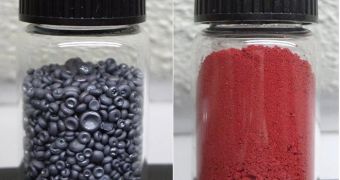According to investigators at the Gerald P. Murphy Cancer Foundation, at the Purdue Research Park, it would appear that fighting off cancer requires the intake of just the right amount of selenium.
Some studies suggest that consuming high amounts of the chemical may provide additional protection against cancer, but this investigation argues that this might not necessarily be the case.
The Foundation researchers say that people should strive for a selenium intake that is right in the middle of the recommended range. Their work suggests that too high or too low selenium intakes both contribute negatively to the development of various types of cancer.
Selenium is an essential trace mineral, known to have great benefits for the human body, but only when consumed properly. It is most commonly found in various types of grains and in certain animal products, but is somewhat rare in nature. The chemical is concentrated in the roots of some plants.
Currently, scientists recommend an intake level of 55 micrograms of selenium per day. This chemical plays a very important role in the human body as an antioxidant, and is also a critical component of numerous selenium-based proteins. The recommended range for this element is very narrow.
What this means is that a higher intake of selenium can easily lead to specific toxicity. The new research shows that people should strive for the recommended quantity every day. Details of the investigation appear in the latest issue of the esteemed peer-reviewed journal BioFactors.
“By documenting the ability of selenium to sweep away DNA-damaged cells, a process we have termed 'homeostatic housecleaning,' the new study builds upon previous observations that the anticancer benefit of selenium supplementation in humans and animals cannot be explained solely by the ability of this nutrient to shield tissues from oxidative stress,” says Emily C. Chiang, PhD.
Chiang, who is the lead author of the study, and a research associate at the Murphy Cancer Foundation, says that in the new study she and her team provide a new perspective on the anticancer properties of selenium, one that is not dependent on the chemical's action as a natural antioxidant.
“When it comes to identifying the optimal selenium dose for prostate cancer risk reduction, it is unlikely that more selenium will always be better. Landing in the trough of the U, achieving mid-range selenium status, is more desirable than being too low or too high,” comments the director of the Center for Exceptional Longevity Studies at the Foundation, David J. Waters, PhD.

 14 DAY TRIAL //
14 DAY TRIAL //